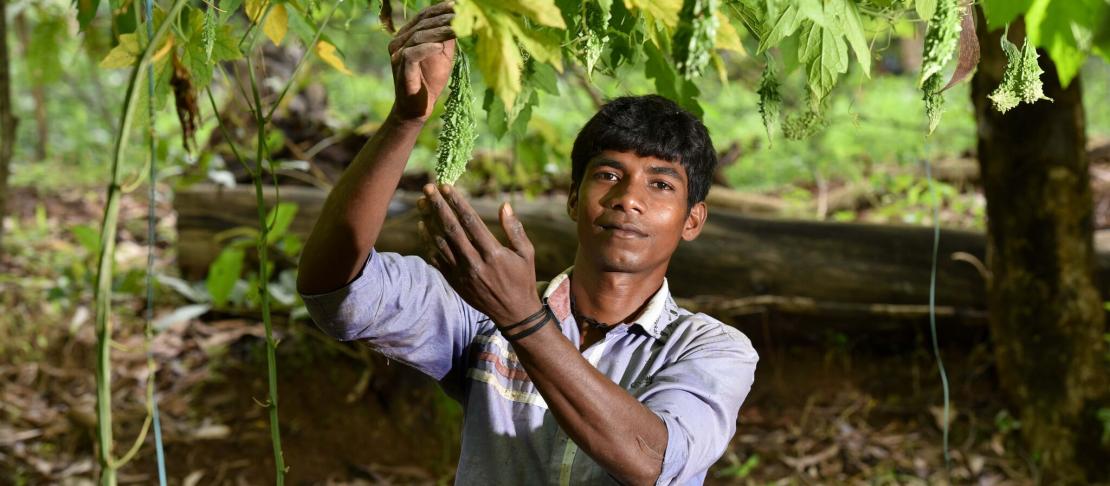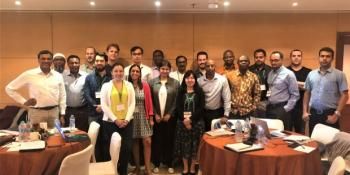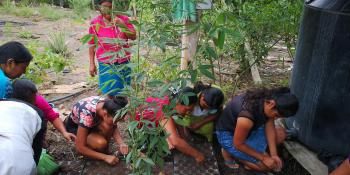Private sector involvement in building climate change resilient agriculture production system in India

New partnerships emerge in South Asia to implement the Climate-Smart Village approach of scaling out climate-smart technologies, practices and services in the climatically risk prone areas.
The Climate-Smart Village (CSV) approach is all set to be scaled-up by partner organizations in India. The CGIAR Research Program on Climate Change, Agriculture and Food Security (CCAFS) is collaborating with ITC Limited from the private sector to build resilient agriculture production systems through the promotion of climate-smart technologies and farmers’ capacity building.
ITC Limited, a multi-business conglomerate of India, has been undertaking a number of initiatives to, build rural capacities in partnership with local communities to develop water and forest resources, open up new non-farm livelihoods, empower women economically and expand primary education and skills. By linking knowledge and technology transfer to the creation of economic and social capacities, this project can add to the unique dynamism of climate change adaptation and mitigation.
Considering the importance of managing climatic risks in rural livelihoods, ITC is collaborating with CCAFS to help agriculture-dependent communities to implement and scale-up the Climate-Smart Village (CSV) approach in its outreach areas. This project aims to cover about 2000 villages in 6 states of India. In the first phase (2016-2019), the project implementation started in three states (Madhya Pradesh, Maharashtra and Rajasthan). Bihar, Uttar Pradesh and Punjab will be covered in the second phase.
This project focuses on community participation through climate-smart farmers’ groups, including women and marginalized farmers, to promote long-term sustainability of the program. CCAFS is providing knowledge inputs for climate-smart intervention design, building capacities of the ITC staff and its associates in the CSV areas, and assisting ITC in setting up a Monitoring and Evaluation system. In the ITC project villages, all climate-smart interventions are implemented in collaboration with local partner NGOs and local government officials.
This project aims to generate the following outputs:
- Increased income and resilience of participating farmers and other poor community members.
- Evidence of CSV related to economic (yield, income, employment), social (gender role and group cohesion) and environmental (water efficiency, carbon sequestration and nutrient efficiency) benefits.
- An innovative product (to be co-branded) for a holistic development of CSVs that can be used as a role model by ITC and others.
- Business and institutional model for public-private partnership including financing and resource leveraging mechanisms for the implementation of CSV model.
- A number of knowledge products such as policy briefs, videos on highly promising CSA practices with some interviews of participating farmers and field staffs, and CSV implementation guidelines will be produced and disseminated at various levels.
For further information on the project please find the following resources and links:
- Brochure: CSV AR4D Approach Brochure
- Photos: Explore more photos from our climate-smart village activities
- Blogs: Climate-Smart Village activities
Arun Khatri-Chhetri is the CCAFS South Asia Science Officer.
Anjali Pant is a Research Assistant at CCAFS South Asia.



